When you’re homesteading in a 4-season environment, choosing the right trees can make all the difference in creating a resilient, sustainable space. You need trees that can handle the extremes—cold winters, hot summers, and everything in between. Whether you’re looking to harvest fruit, nuts, or even timber, or simply want to create a natural windbreak, having the right mix of trees will ensure your land thrives year after year. Here’s a list of 15 versatile trees that not only survive but also thrive in 4-season climates.
These trees are strong, useful, and perfect for anyone who wants to make their homestead more self-sufficient, sustainable, and beautiful.
1. Apple Trees
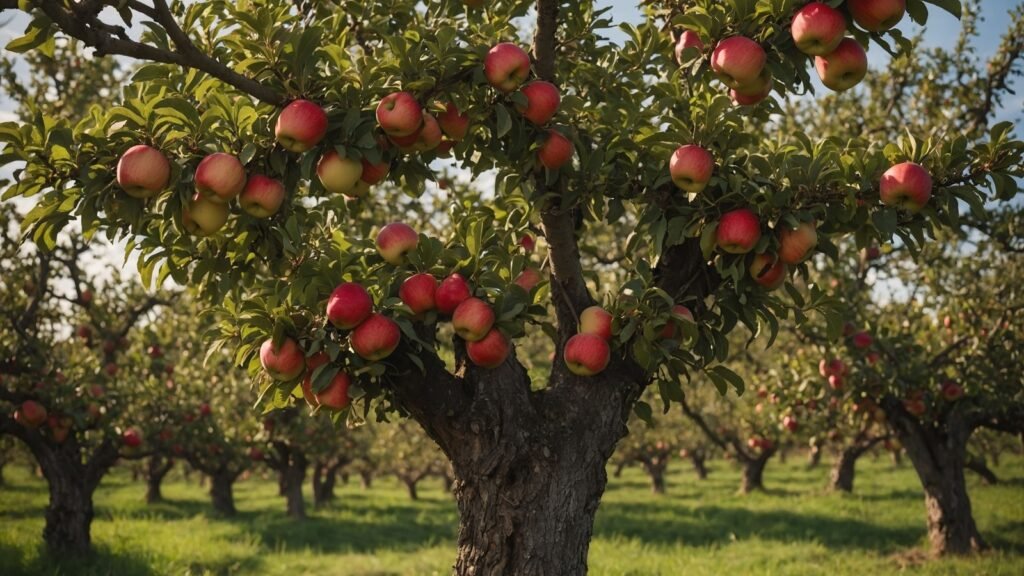
Apple trees are a classic choice for homesteaders, and for good reason. They thrive in temperate climates with cold winters and warm summers. Varieties like Honeycrisp and Golden Delicious can withstand freezing temperatures and produce a reliable harvest. Plus, apples can be used fresh, for cider, or stored for winter, making them a perfect long-term food source.
2. Black Walnut
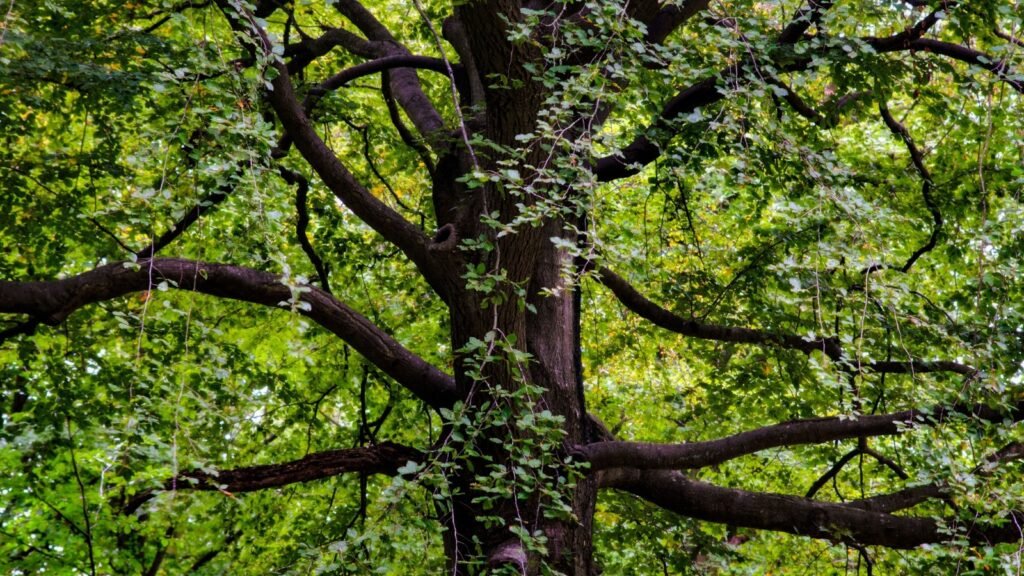
The Black Walnut is a great dual-purpose tree. Not only does it produce highly nutritious nuts, but its wood is also valuable for timber. Black walnuts grow well in areas with cold winters and are incredibly hardy once established. Just be mindful of their allelopathic nature, as they release chemicals that can inhibit the growth of some plants nearby.
3. Sugar Maple
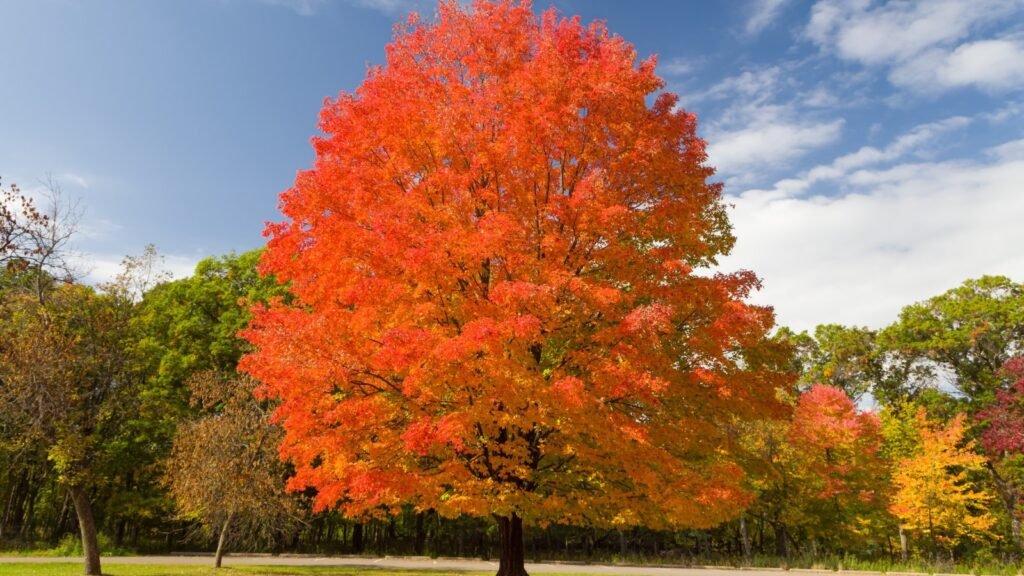
Sugar maples are famous for their beautiful fall colors and, of course, their sap, which can be tapped to make syrup. These trees do best in regions with cold winters and can live for over 100 years. A sugar maple grove can be a long-term investment in both beauty and a sweet, sustainable sugar alternative.
4. Pear Trees

Like apple trees, pear trees are great for homesteads in 4-season climates. Varieties like Bartlett and Kieffer can handle cold winters, and pears store exceptionally well. They’re less prone to pests than apples and can provide a fresh fruit source from late summer through fall.
5. Oak Trees
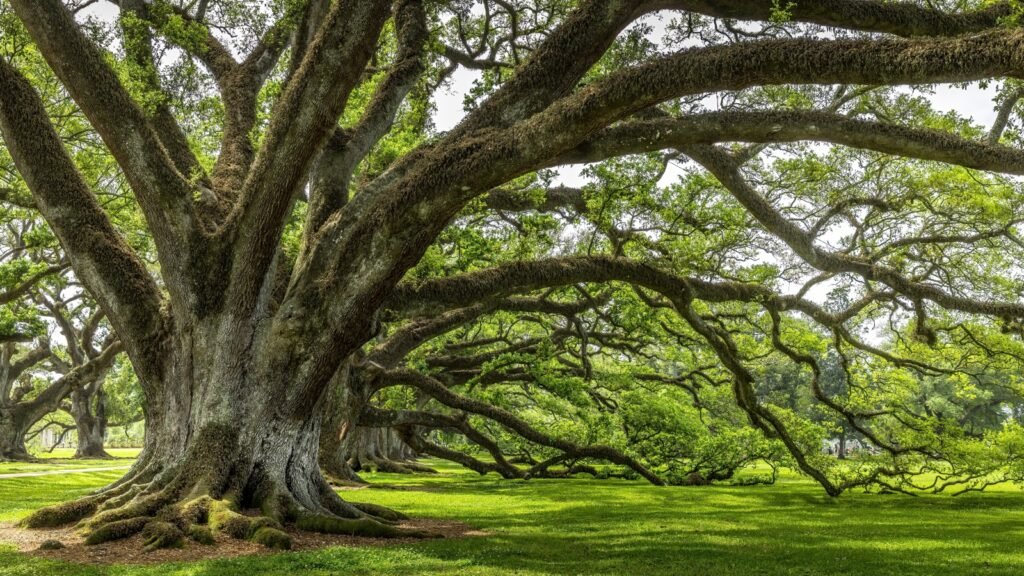
Oak trees are robust and adaptable, with many species thriving in 4-season climates. They provide valuable acorns for wildlife or livestock feed, and the wood is highly sought after for furniture and firewood. Red oak and white oak are both excellent choices, offering shade, timber, and a sense of grandeur on any property.
6. Chestnut Trees
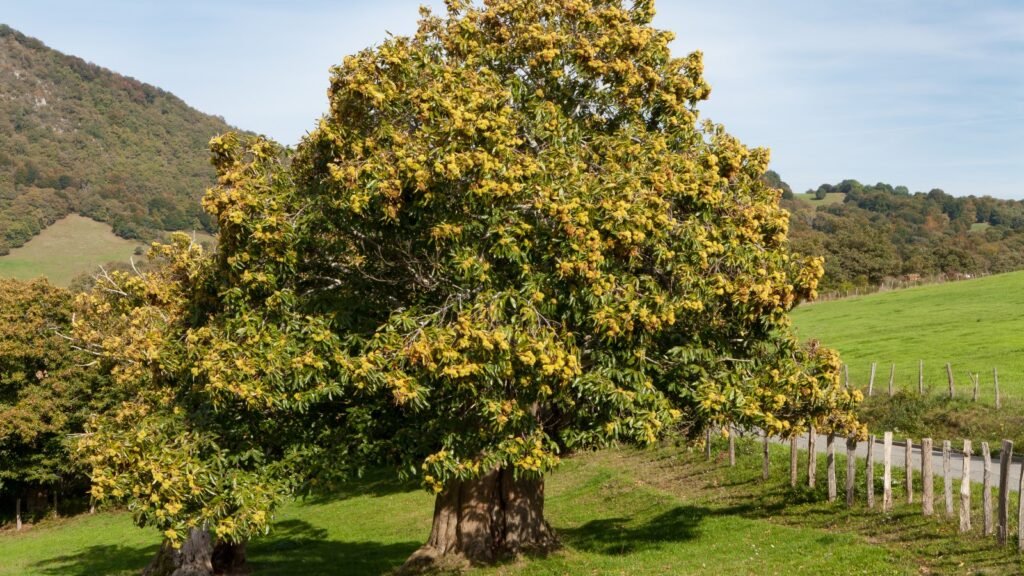
Chestnut trees are a fantastic option for homesteaders, especially since their nuts are both delicious and packed with nutrients. Hybrid varieties like the Dunstan Chestnut are resistant to chestnut blight and thrive in 4-season climates. These trees can provide shade and food for decades, if not centuries.
7. Hazelnut
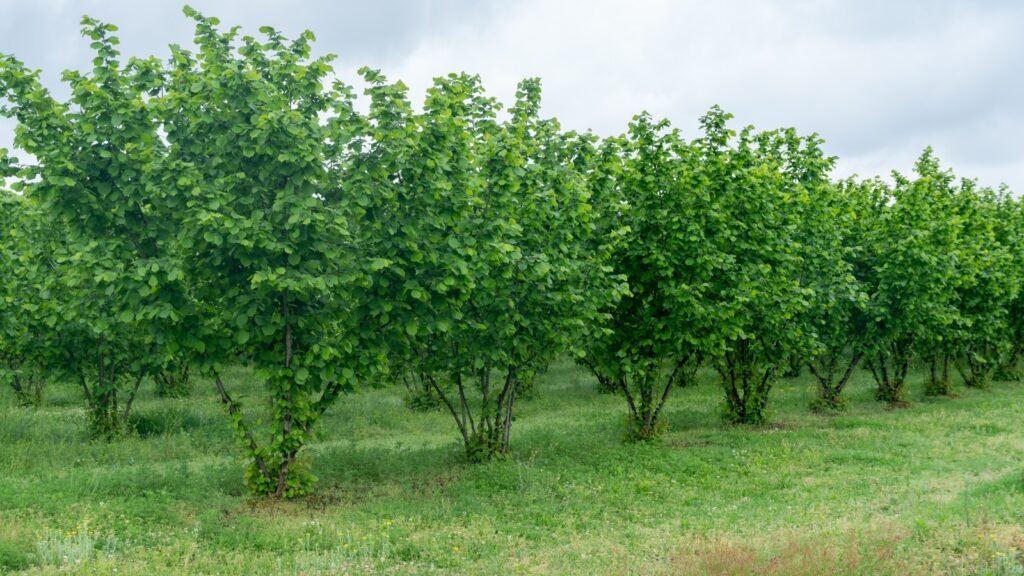
Hazelnut trees are smaller but highly productive, making them a good fit for more compact spaces. They are cold-hardy and produce nutritious nuts that can be stored or used in various recipes. Hazelnuts are also great for wildlife, helping to support the ecosystem of your homestead.
8. Cherry Trees
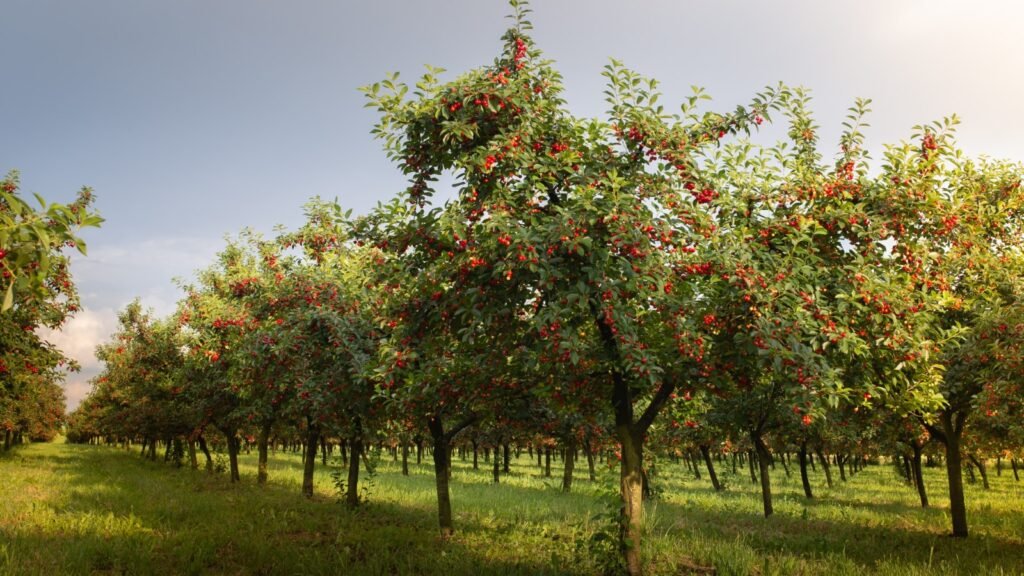
Cherries, particularly sour cherry varieties like Montmorency, are well-suited to 4-season environments. These trees can handle cold winters and produce a reliable harvest each summer. The fruit can be eaten fresh, frozen, or dried, providing a long-lasting food source for your homestead.
9. Poplar Trees
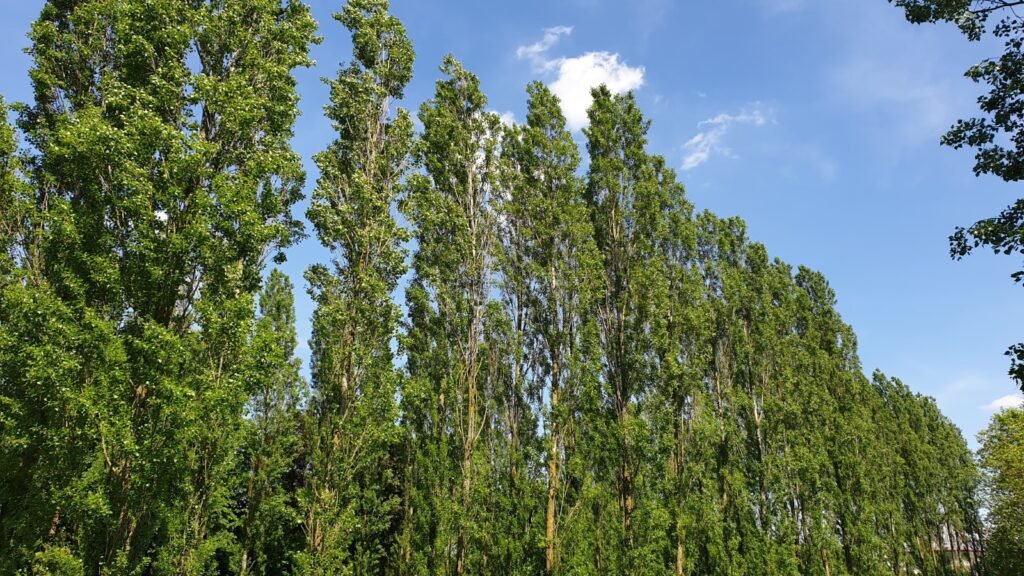
If you’re looking for a fast-growing tree for windbreaks or timber, poplar is an excellent choice. Poplars thrive in a range of climates, including those with harsh winters. They grow quickly and can be harvested for wood in as little as 10-15 years, making them a sustainable source of firewood or construction material.
10. Mulberry Trees
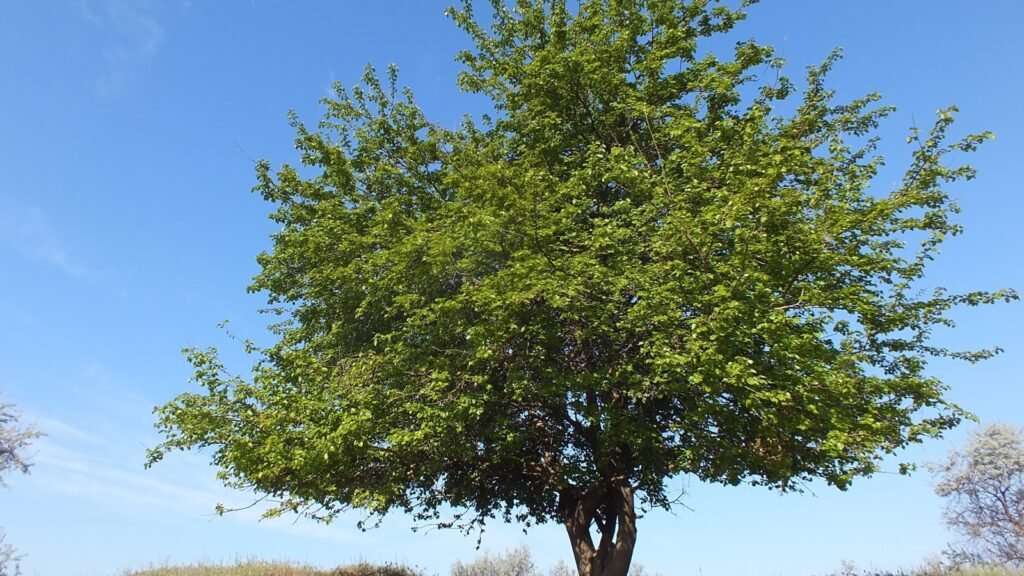
Mulberries are a fantastic multi-purpose tree. They grow quickly, handle extreme temperatures, and produce an abundance of berries that can be eaten by both people and animals. They’re especially hardy and resistant to many pests and diseases, making them a great addition to any homestead.
11. Plum Trees
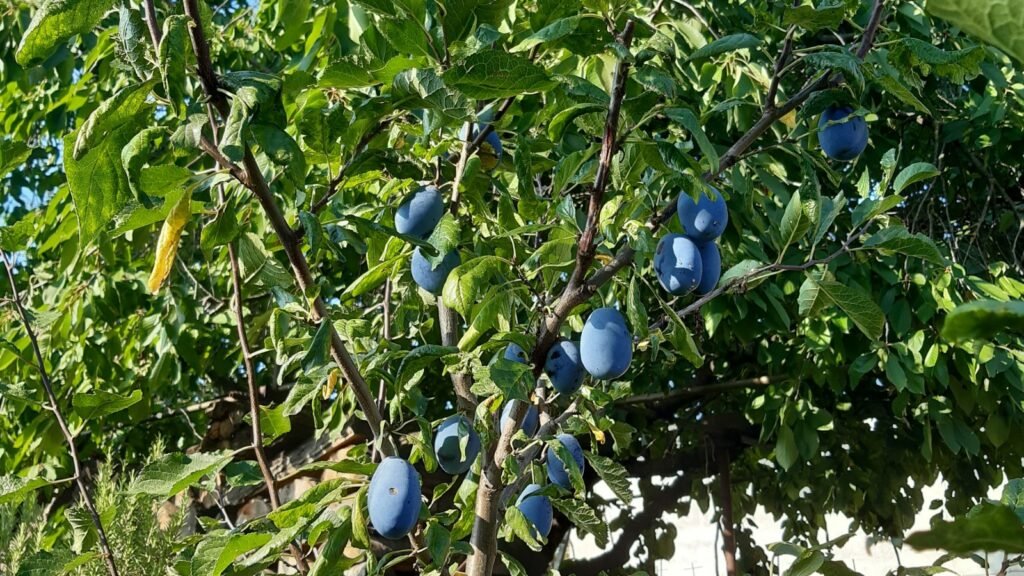
Plum trees, especially cold-hardy varieties like the European plum, are well-suited to temperate climates. They produce delicious fruit that can be eaten fresh, canned, or made into preserves. These trees are also relatively easy to grow and maintain, making them a homestead favorite.
12. Pecan Trees
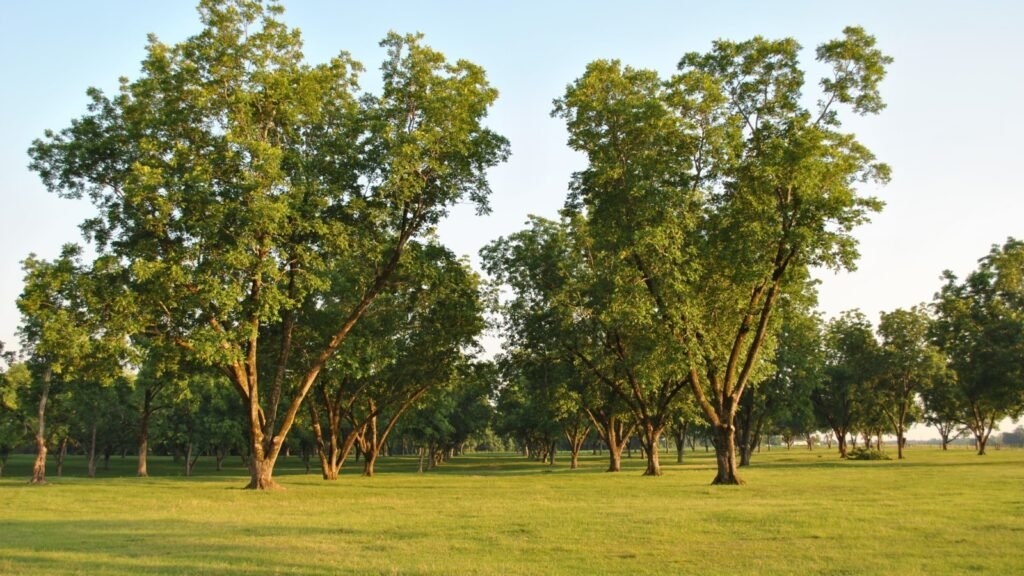
Pecan trees are a great long-term investment for homesteaders. While they take several years to start producing nuts, once they do, they can produce for generations. Pecans grow well in areas with cold winters and hot summers, providing a tasty and nutritious nut crop each fall.
13. White Pine
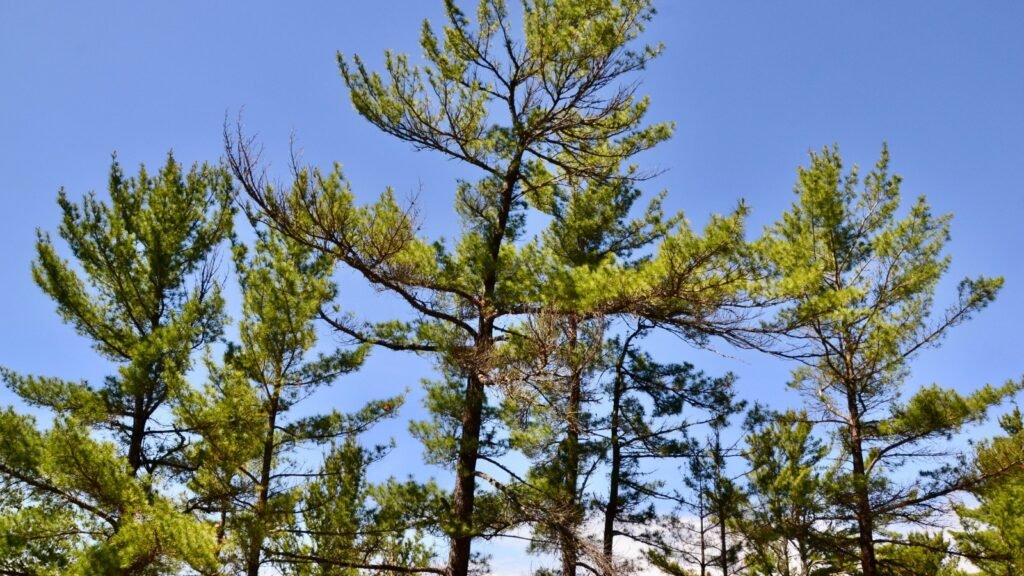
White pine is a fast-growing conifer that provides excellent timber and can also serve as a windbreak or privacy barrier on your homestead. It’s very cold-tolerant and grows well in many soil types. White pine wood is commonly used for building and is a sustainable resource when managed properly.
14. Hickory Trees
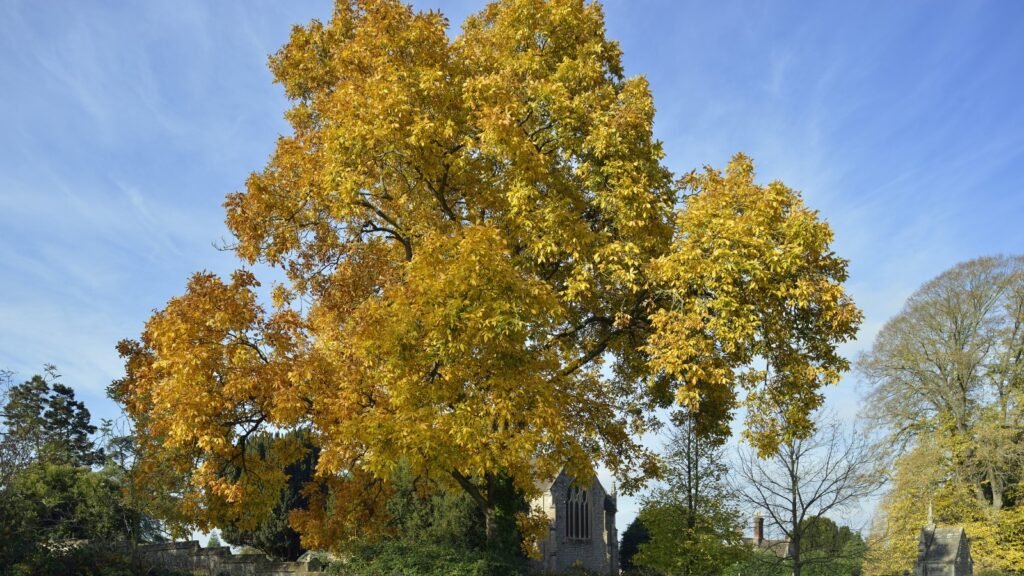
Hickory trees are another excellent nut-producing option for 4-season climates. Their nuts are high in fat and protein, making them a valuable food source. Hickory wood is also prized for its strength and is often used in tool handles, firewood, and furniture. Shagbark hickory is a particularly hardy variety that does well in colder climates.
15. Willow Trees
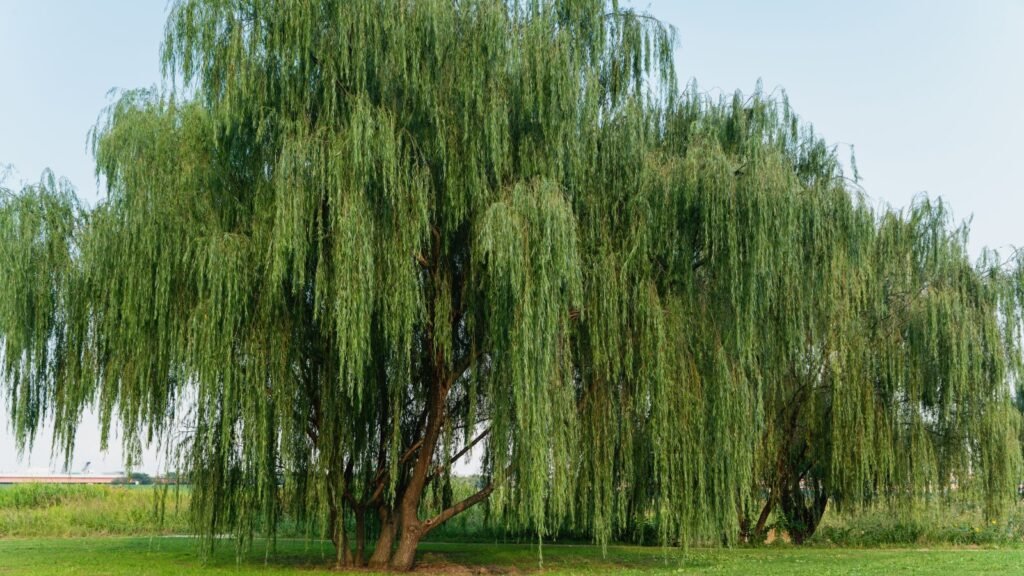
Willows are fast-growing trees that are excellent for managing water on your property. They thrive in wet soils and can help reduce erosion or dry up waterlogged areas. Willows are also commonly used for basketry or fencing and provide a useful resource for homesteaders with livestock or gardening needs.

